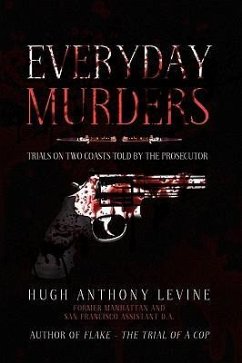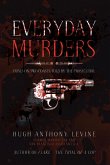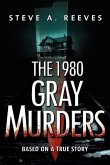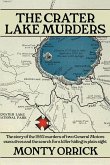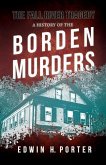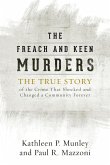Excerpt from Chapter One: All Tanenbaum said was "And then what happened, Eddie?" He appeared to enter some weirdly hypnotic, catatonic trance-his already breathy voice became monotonal, his eyes glazed over, his face drained of expression-and he went on and on and on. "She said, 'Wait until your mother hears this; this is going to break her heart.' And I said, 'Please don't tell my mother, Sherrald; please don't tell my mother, Sherrald; please don't tell my mother.'" And while Eddie Hurdle continued to mouth that refrain, "please don't tell my mother," both of his hands gripped an imaginary knife and repeatedly, metronomically, plunged it down and raised it up and plunged it down and raised it up, over and over and over again. The three observers-Davin, Tanenbaum, and the stenotypist-sat in stunned silence as Eddie Hurdle reenacted his crime. * * * * "Other sins only speak; murder shrieks out," wrote playwright John Webster in 1623, and our fascination with murder and murder trials has continued unabated to the present. Murder is, after all, the most dramatically unlawful thing a person can do to another. It runs counter to the very fundaments of human society, breaching what social philosophers have termed the social contract. Society speaks with its firmest voice in addressing the conduct of its members who kill another, and murder prosecutions have the direst of consequences of any court proceeding, as they may occasion the loss of a violator's liberty for life or even the loss of his or her life itself. But most murder cases, while fascinating in the motives or personalities of the killers or the circumstances of the killings and the ensuing trials, receive little attention and recede into ordinariness. Only rarely does a murder case become a cause célèbre, notorious enough to capture wide attention; the O. J. Simpson-, Scott Peterson-, Claus von Bülow-type cases prove the exception rather than the rule. For the most part, the public's perception of garden-variety murder trials quickly becomes only memory's ashes strewn sparsely on the fields of public awareness. Brought to life by the prosecutor who tried the six "everyday murders" narrated here, three in Manhattan and three in San Francisco, these true stories prove redolent with drama, encapsulating raw human emotions that often impel man to murder-greed, lust, jealousy, hatred, as well as mere folly-and actually are quite extraordinary in their own context. Sit at the prosecution's table with masterful prosecutor Hugh Anthony Levine as he represents the People of the State of New York or the People of the State of California in the trials of some everyday murders.
Hinweis: Dieser Artikel kann nur an eine deutsche Lieferadresse ausgeliefert werden.
Hinweis: Dieser Artikel kann nur an eine deutsche Lieferadresse ausgeliefert werden.

